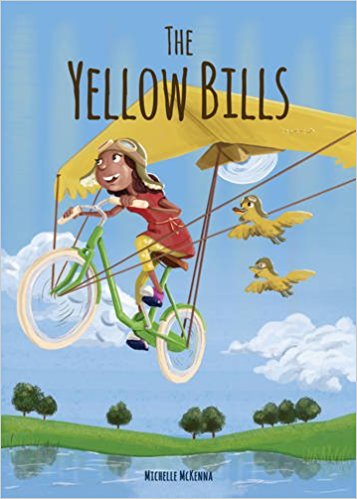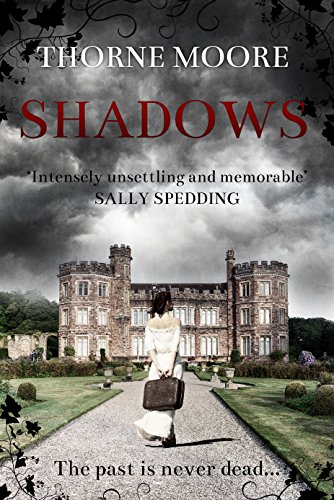Many of you will have enjoyed Trish’s writing here before. She is one of my many talented students that I’m privileged to tutor each week. Hope you equally relish this dip into the past. For some of you it’s a small history lesson, for others, a memory. I am not saying which group I belong to!!
The following words belong to Trish…
If you haven’t heard of a liberty bodice, believe that half-a-crown is something to do with impoverished royalty and never had the experience of slapping a television to stop the grainy black and white picture from rolling, then this book is probably not for you.
It is intended for us Baby Boomers who, in the stability following the Second World War, formed a statistical bulge in the population python. It is a personal snapshot of a time that is as mystifying to my children as the Jurassic Era -and just as unrecognisable.

My intention is to nudge some long-forgotten memories to the surface, test your own recollections and provide statistics to put it all in context.
Are you sitting comfortably? Then I’ll begin…
The Rat in the Python
Chapter One The House
It would be fair to say that most houses in this country pre-date our generation and so this topic should present few surprises.
However the external appearance is deceptive. We’ve all seen old postcards of towns and can instantly recognise many of the buildings. But what of the insides?
They were different.
In my day none of my friends had fitted carpets and central heating was unheard of. We did have carpets, and the ones I remember were hideously patterned, but they were square or rectangular, circular or oval and housewives in a hurry could lift a corner and sweep the dust and dirt under them.
Heating
We had a coal fire downstairs and my mother would plait and weave strips of newspaper, lay them like a nest in the grate and build a carefully-constructed pyramid of coal in the centre in and around more of these strips. Then she’d light the paper. If it looked as though it was going to sulk and go out she’d produce a sheet of galvanised zinc like a flat shield that she’d hold over the front of the open fire to ‘draw’ it up and once it was going properly we’d feed it with great hunks of coal the size of bread loaves that you could later split open with the poker.
My father would hold the paper he was reading in front of a flagging fire to quickly perk it up. This wasn’t always successful. A dark patch would appear in the middle of the newsprint before the hastily dropped paper burst into flames. Occasionally we’d use a toasting fork to dangle bits of bread in front of the fire but conditions had to be just right. Too soon after the addition of fresh coal and you had a brittle piece of bread with smoked edges; wait until it was too hot and the bread itself would flame and char. There was also a knack to balancing the bread on the fork so that as large a flat surface as possible presented itself to the heat. I lacked this knack. The bread would tear around the prongs and slide down towards the handle or I’d have it so delicately balanced that it would fall off into the gritty ashes or the blaze itself
Paraffin heaters were also popular; ugly great brutes that reeked and smoked but put out an impressive bit of heat. When I first heard ‘Smoke Gets in Your Eyes’ I thought of these heaters and even now I can see the blue ring of flames that had to be set at just the right height to balance heat against pollution. And if you’ve lived in a house with a paraffin heater you won’t need me to remind you of that all-pervasive, oily smell.
The non-smelly heating involved electric bar fires. Virtually everyone I knew had at least one of these in the home. They ranged from those of impressive size which stood proudly in the fireplace as a soulless coal substitute, to small, portable ones. These consisted of one or two tightly-wound bars of wire in front of a shiny concave area designed to reflect heat back into the room. You’d flick a switch at the side to turn on one or both bars and then you’d wait to see if either began to glow red. Eventually they’d click and creak and produce a vicious belt of radiant heat from bright-orange elements which were ‘protected’ by a few widely-spaced strips of thin steel. From a Health & Safety perspective these were a nightmare by anyone’s standards. On the other hand, as few families of our acquaintance used fireguards for their coal fires – or their paraffin heaters, for that matter – I suppose it points to a time when Darwinism ruled; parents warned offspring of the dangers and, if they didn’t want to end up as a Cautionary Tale, children kept fingers and other bits at a safe distance.
In the winter, when houses which had never heard of double glazing shivered and quivered, sash windows rattled and draughts moaned through closed doors, the family snuggled up in front of the heat source. Those old advertisements of parents and children in a compact group do reflect the times, but the togetherness was often down to a primitive need to be warm rather than a desire to spend time with each other. Anywhere further than six feet from a fire was as foolhardy as a penguin trying to go it alone in the Antarctic Those of us who got as close to the heat as was possible, without actually spontaneously combusting, suffered from chilblains. I don’t know if anyone in this country still gets chilblains but for me it was an expected accompaniment to the cold weather. My feet were affected more than my hands and I can remember stamping them hard on the ground on my way to school in an attempt to calm the dreadful itch of them.
It goes without saying that when the downstairs was cold, the upstairs was colder. In a time before electric blankets and duvets all we had to protect us was a sheet, blankets and a hot water bottle. Some expensive hotels still use sheets and blankets in preference to duvets but they have the benefit of centrally heated rooms that make them an affectation rather than a necessity. It didn’t seem to matter how many blankets were heaped on the bed, the only bit that felt warm was the bit right next to you that had leached the heat from your own body. Hot water bottles were very welcome but imperfect. Unimaginative relatives knitted weird, lank, garter-stitched covers for them but I never used mine because they absorbed some of the heat intended for me. This meant that at first the bottle was too hot to touch and I’d put my foot against it for as long as I dared before snatching it off at the last moment (exacerbating the chilblain situation). For the briefest of times the temperature was perfect, and it was a real comfort. On waking you quickly learned not to move beyond your imprint in the bed. Everywhere else was inhospitably cold and you could watch your breath curl around the room whilst you mustered the courage to get up. The hot water bottle, by now endothermic, was resolutely avoided until the last moment when both feet would dart down, snatch it up the bed and leave it on top for re-filling that night.
Sometimes, presumably after vivid dreams, I’d wake in the night to find myself either entangled in a nightmare of Witney blankets or shivering because one end was still attached at the foot of the bed but the rest were in a heap on the floor. In the latter case, it was impossible to simply pull them up and go back to sleep; they had to be individually replaced in the right order or they’d be sliding off before you could start counting sheep again.
I was a student when I used a duvet (or continental quilt as they were billed then) for the first time. It was synthetic and the filling quickly moulded itself into clumps that refused to even themselves out again. Nevertheless, from that moment on I knew there was no going back to sheets and blankets.
And there’s nothing more irritating than blankets with rucks in them, unless it’s blankets that don’t line up at the bottom of the bed, or blankets that don’t reach your chin. Or blankets.
Heating also leads me to the issue of plugs and sockets.
My grandmother had a friend who would make sure before she went to bed that every socket had a plug in it. She explained it was to stop the electricity escaping into the house. In her day, as in mine, those sockets were round and the plugs that went into them were round-pin plugs. They were usually brown bakelite and the flex that went into them was covered in a woven material that frequently frayed into long wispy bits at the ends. It’s weird but I don’t remember the changeover from round prongs to square. Did I sleep through it? Did it happen so slowly that it crept up in tiny steps until the old was gone and the new already commonplace?
I suspect that when houses were first wired for electricity they were done in a half-hearted way because no one could think of many uses for the stuff and so one socket per room was considered more than ample. Then people decided on table and standard lamps to cast a warm glow on father reading his paper or mother darning the socks, wirelesses that needed wires, gramophones, electric fires, irons. The only way to deal with such a constraint was to buy adapters and stick one into another until there were sufficient sockets to satisfy demand. The weight of the massed plugs vying for space was frequently enough to drag the adapters away from the wall and someone would have to push them back in to restore power. As I write this, one of the public information films of the time has surfaced in my head and it shows such a cluster of adapters smoking in protest before bursting into flames. It wasn’t just my family, then…
The kitchen
The kitchen seems to be at the forefront of change. In the 50s there were rich pickings to be had for anyone with an innovation that was labour-saving or which made the heart of the home look more modern. Into the 21st century, the wheel has turned in the opposite direction and the more modern look involves a return to butler sinks and free-standing shabby chic furniture in place of the streamlining of the fitted kitchen but, like a return to blankets, there is space for these when other things allow them to be decorative features over the practical.
When I was a child, like most of my friends it was assumed that my mother would stay at home and be a housewife whilst my father would go out and work to keep her there. Women were given housekeeping money and were expected to make it stretch to cover all our needs. A housewife wore an apron to protect her clothes that were comparatively expensive in a time before cheap, supermarket-produced goods. To make ends meet she would frequently cook the same things on the same day of the week so Monday’s meal would be something that made use of the leftovers from Sunday’s roast. She would cook the meals on a white, enamelled stove and ours had bluish-black chips showing where pans had knocked against the enamel. There would also be whorls of grey scratches around the rings where spills had been scrubbed clean.
The food was kept in cupboards or, if you had the space, in a pantry. Vegetable racks held greens with yellowing outer leaves and a limited selection of root vegetables that were prepared in the sink. The first kitchen sink I remember was a white, enamelled one with a green stain under the cold water tap. Taps – which invariably had knobbly cross-shaped tops – seemed to drip with a frequency uncommon today.
Milk was kept in a small fridge (and ours was the envy of our neighbours because it had a freezer compartment that was big enough for some ice cubes or a block of waxy ice cream). I knew someone who still put her milk and cheese in a milk-safe. This was a terracotta container that was placed over the items and doused in water. In hot weather the evaporating water kept the contents cool and at a time when milk arrived daily that was usually enough.
Without the benefit of freezers, a lot of our food came in cans and, before we bought our first rotary, or butterfly, can-opener, the lids had to be removed using a metal lever that was used to punch triangular holes around the top until you could bend the jagged edge back and get at the contents. The rotary opener was a vast improvement on this but there always came a time when it would slip its way round without cutting. You’d have to try clipping it onto the can at a rakish angle and grip really, really tightly, praying that it would get far enough round for success. Inevitably there would be a couple of patches that the opener had grooved but not cut and these were now more difficult to reach. We weren’t the first family, I’m sure, that would resort to sliding spoon handles into the gap, trying to prise the lid back.
There were very few kitchen gadgets in our house when I was a child. We did have a rotary whisk which I found mesmerisingly exciting. Chips were cooked in a saucepan with a wire basket to hold, remove and drain them. You’d put a slab of lard into the pan, heat it up until it was smoking, put the prepared chips into the wire basket and lower it, hissing and spitting like a trapped cat, into the fat. It is no surprise that chip pan fires also feature prominently in my memories of public information warnings.
The cupboards were filled with china, and there was always one cupboard that had the best china in it to be used when visitors came. Cups always had saucers, and mugs were unheard of in the home. If I fast forward to the beginning of the sixties I enter a different world of colour and melamine. We thought melamine was cool and trendy and it spun and clattered without breaking when dropped onto the equally colourful Marley tiles arranged checkerboard-style on the floor. We threw out our melamine when earthenware became popular…
As a child it wasn’t uncommon to have three cooked meals a day. Breakfast might be scrambled eggs on toast or a fry-up, lunch would generally consist of something meaty with vegetables plus a pudding and the evening meal would be a more substantial version of lunch. All of these meals were cooked from scratch which generated a good deal of washing up. As a consequence, mothers around the country would be continually reaching for their Marigolds and balancing the washed items on the wire rack on the draining board to be dried with a tea-towel that had a stripe down each side.





![The Usurper King by [Haradon, Zeb]](https://images-eu.ssl-images-amazon.com/images/I/51nfZRINqmL.jpg)













 Gathering even more of us all together this week to show what a treat is in store at our book fair. Do please drop in to our website:
Gathering even more of us all together this week to show what a treat is in store at our book fair. Do please drop in to our website: 










![Glimpses by [Roberts, Hugh W.]](https://images-eu.ssl-images-amazon.com/images/I/5120Pud4DmL.jpg)














